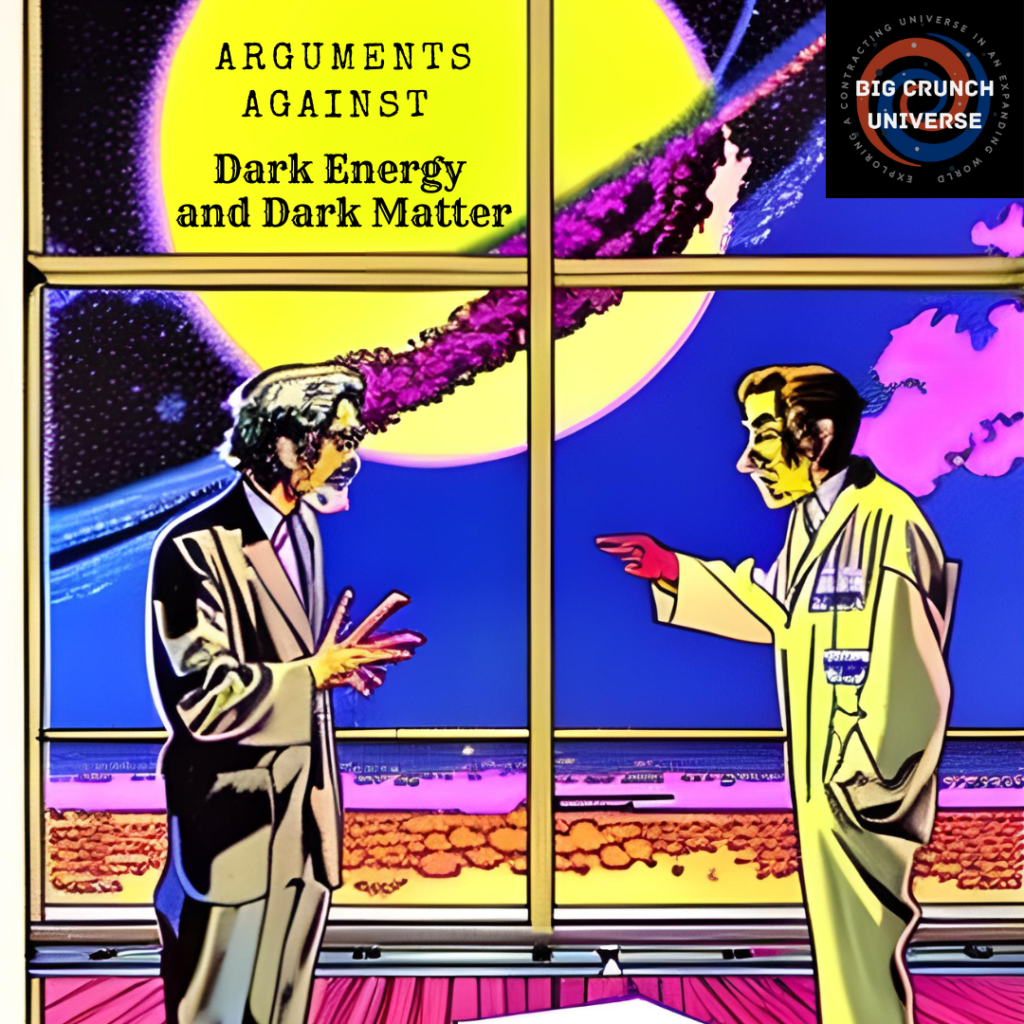What are some arguments against dark energy and dark matter?
While dark energy and dark matter provide theoretical explanations for observed phenomena in the universe, there are ongoing debates and alternative hypotheses challenging their existence. Here are some critical views against dark energy and dark matter:

1. Modified Gravity Theories:
Some physicists propose modified gravity theories, such as Modified Newtonian Dynamics (MOND) or Modified Gravity (MOG), which suggest that the observed gravitational effects attributed to dark matter can be explained by modifying the laws of gravity on large scales. These theories aim to account for the observed galactic rotation curves and gravitational lensing without the need for additional invisible matter.
2. Systematic Errors and Misinterpretations:
Skeptics argue that the evidence for dark matter and dark energy is based on indirect observations and measurements that rely on assumptions and models. They suggest that some of the observed phenomena can be explained by systematic errors, misinterpretations of data, or incomplete understanding of astrophysical processes.
3. Emergent Gravity:
Some researchers propose the concept of emergent gravity, which suggests that gravity is not a fundamental force but rather emerges from the collective behavior of particles or information in the universe. According to this idea, the effects attributed to dark matter can be explained by the emergent nature of gravity, eliminating the need for unseen matter.
4. Cosmological Constant Problem:
The cosmological constant, associated with dark energy, is the leading explanation for the observed accelerated expansion of the universe. However, there is an ongoing debate about the fundamental nature of the cosmological constant and why its value is so small compared to theoretical predictions. Critics argue that the cosmological constant problem raises doubts about the existence of dark energy and suggests a need for alternative explanations.
5. Modified Dark Matter Theories:
Instead of positing a new type of matter, some researchers propose modifying the laws of physics at large scales to explain the observed gravitational effects. These alternative theories attempt to account for the observed phenomena by modifying the behavior of ordinary matter, rather than invoking the existence of dark matter particles.
It is important to note that while these arguments challenge the prevailing notions of dark energy and dark matter, the majority of the scientific community supports the existence of these concepts based on the wealth of observational and theoretical evidence accumulated over the years. Nonetheless, ongoing research and alternative theories contribute to the scientific process of refining our understanding of the universe.